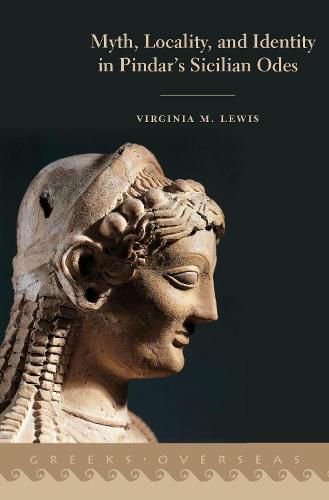Readings Newsletter
Become a Readings Member to make your shopping experience even easier.
Sign in or sign up for free!
You’re not far away from qualifying for FREE standard shipping within Australia
You’ve qualified for FREE standard shipping within Australia
The cart is loading…






Myth, Locality, and Identity argues that Pindar engages in a striking, innovative style of mythmaking that represents and shapes Sicilian identities in his epinician odes for Sicilian victors in the fifth century BCE. While Sicily has been thought to be lacking in local traditions for Pindar to celebrate, Lewis argues that the Sicilian odes offer examples of the formation of local traditions: the monster Typho whom Zeus defeated to become king of the gods, for example, now lives beneath Mt. Aitna; Persephone receives the island of Sicily as a gift from Zeus; and the Peloponnesian river Alpheos travels to Syracuse in pursuit of the local spring nymph Arethusa. By weaving regional and Panhellenic myth into the local landscape, as the book shows, Pindar infuses physical places with meaning and thereby contextualizes people, cities, and their rulers within a wider Greek framework. During this time period, Greek Sicily experienced a unique set of political circumstances: the inhabitants were continuously being displaced, cities were founded and resettled, and political leaders rose and fell from power in rapid succession. This book offers the first sustained analysis of myth in Pindar’s odes for Sicilian victors across the island that accounts for their shared context. The nodes of myth and place that Pindar fuses in this poetry reinforce and develop a sense of place and community for citizens locally; at the same time, they raise the profile of physical sites and the cities attached to them for larger audiences across the Greek world. In addition to providing new readings of Pindaric odes and offering a model for the formation of Sicilian identities in the first half of the fifth century, the book contributes new insights into current debates on the relationship between myth and place in classical literature.
$9.00 standard shipping within Australia
FREE standard shipping within Australia for orders over $100.00
Express & International shipping calculated at checkout
Myth, Locality, and Identity argues that Pindar engages in a striking, innovative style of mythmaking that represents and shapes Sicilian identities in his epinician odes for Sicilian victors in the fifth century BCE. While Sicily has been thought to be lacking in local traditions for Pindar to celebrate, Lewis argues that the Sicilian odes offer examples of the formation of local traditions: the monster Typho whom Zeus defeated to become king of the gods, for example, now lives beneath Mt. Aitna; Persephone receives the island of Sicily as a gift from Zeus; and the Peloponnesian river Alpheos travels to Syracuse in pursuit of the local spring nymph Arethusa. By weaving regional and Panhellenic myth into the local landscape, as the book shows, Pindar infuses physical places with meaning and thereby contextualizes people, cities, and their rulers within a wider Greek framework. During this time period, Greek Sicily experienced a unique set of political circumstances: the inhabitants were continuously being displaced, cities were founded and resettled, and political leaders rose and fell from power in rapid succession. This book offers the first sustained analysis of myth in Pindar’s odes for Sicilian victors across the island that accounts for their shared context. The nodes of myth and place that Pindar fuses in this poetry reinforce and develop a sense of place and community for citizens locally; at the same time, they raise the profile of physical sites and the cities attached to them for larger audiences across the Greek world. In addition to providing new readings of Pindaric odes and offering a model for the formation of Sicilian identities in the first half of the fifth century, the book contributes new insights into current debates on the relationship between myth and place in classical literature.